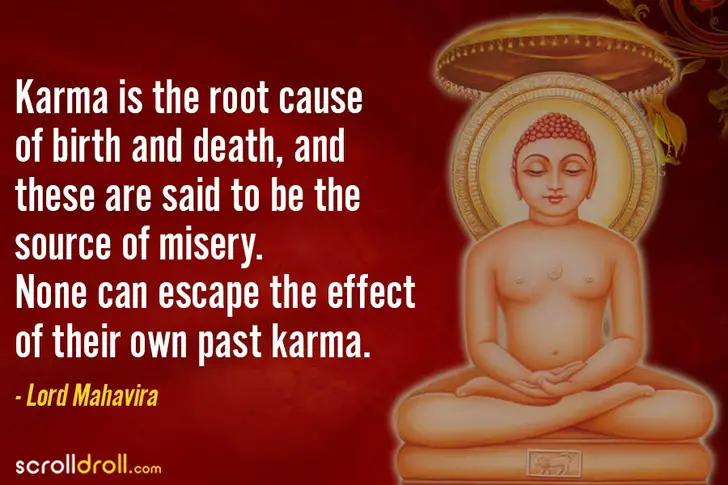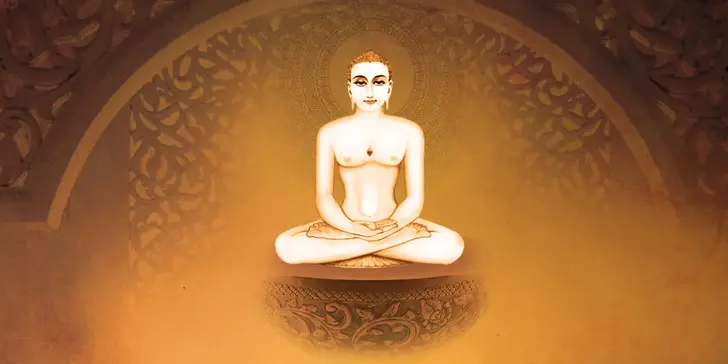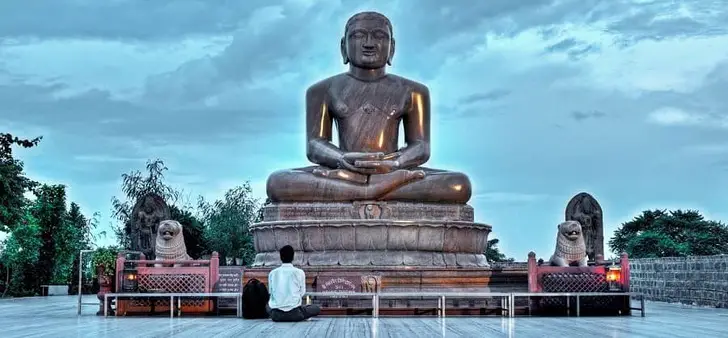Step into the serene world of Jainism, an ancient Indian philosophy that weaves spirituality, non-violence, and enlightenment into its intricate tapestry. Explore the essence of this timeless belief system through 15 Jainism facts that unveil its rich history, profound principles, and enduring influence. From the teachings of Mahavira to the significance of ahimsa (non-violence), join us on a contemplative journey through the core tenets and unique practices that define Jainism. Prepare to discover a philosophy that seeks harmony not only within oneself but with the entire cosmos.
1-5 Fun Facts About Jainism

1. Jainism, a religion that is reestablished by Lord Mahavira in the 6th century BCE, predates both Buddhism and Hinduism.
2. According to Jainism, the concept of time is structured on a cosmic wheel consisting of six eras. Presently, humanity finds itself in the fifth era, characterized by sorrow, limited happiness, an average height of 6 feet, and a lifespan of less than 130 years. The belief holds that eventually, the cycle will return to the first era, marked by unparalleled happiness, the absence of sorrow, an average height of 6 miles, and an extraordinary lifespan of 3 x 10^194 years.
3. Emphasizing non-violence to an extreme degree, some Jains go to great lengths, covering their mouths and even sweeping their paths to avoid causing harm to smaller creatures. An extremist Jain wouldn’t hurt a fly—literally!
4. The philosophy of Jainism asserts that the soul undergoes cycles of birth, death, and rebirth, with the nature of each rebirth determined by the law of cause and effect, known as Karma, based on the individual’s actions.
5. While Jainism represents a small fraction of India’s population (0.4%), making it the country’s smallest among the six major religious groups, Mumbai, the capital of Maharashtra and a prominent business center in India, boasts a higher percentage, with 4% of its population identifying as Jain.
6-10 Interesting Facts About Jainism

6. Jainism recognizes five fundamental vows, known as Anuvratas, guiding adherents toward a righteous and ethical life: non-violence (ahimsa), truthfulness (satya), non-stealing (asteya), celibacy (brahmacharya), and non-attachment (aparigraha). These vows play a crucial role in shaping the moral conduct of Jains.
7. In the dietary practices of Jainism in India, even root vegetables like potatoes and garlic are avoided, as harvesting them involves killing the entire plant, which cannot regenerate.
8. Monks belonging to the Digambara sect of Jainism adhere to ascetic practices such as abstaining from clothing, refraining from bathing, drinking water from a gourd, begging for sustenance, and using a duster made of fallen peacock feathers to clear their path of insects, preventing harm to them.
9. Jain monks and nuns, in pursuit of simplicity and detachment, adhere to a minimalist lifestyle, refraining from the use of electricity, modern technology, vehicles, and electronic devices.
10. At the heart of Jainism lies a profound respect for life in all its forms. Jains believe that every living being, from the towering trees to microscopic bacteria, possesses a soul. In the cosmic dance of existence, all souls have the potential to attain nirvana—a state of ultimate liberation.
11-15 Surprising Facts About Jainism

11. A significant influence on Mahatma Gandhi’s philosophy of satyagraha was Shrimad Rajchandra, a Jain scholar who authored one of the essential recent Jain religious texts, Atmasiddhi.
I2. Jain doctrine, there is a timeless existence of Jainism itself, devoid of a creator god or a divine judge. Jains don’t engage in worship of a specific deity but instead admire and aspire to emulate liberated souls that have achieved nirvana.
13. According to Jainism, each atman, or soul, is considered indescribably perfect and, in the absence of karmic obstructions, exists in a state of perfect bliss and knowledge.
14. The path to moksha in Jainism involves not only shedding negative karma (paap) but also relinquishing all positive karma (punya).
15. Belgian Jains, originating from the Gujarati city of Palanpur, exert significant influence, controlling approximately 60% of the world’s rough diamond trade.
That’s it for this post guys, I hope you had fun while reading about 15 Fun Facts About Jainism.
In case you’re interested in reading other articles:
15 Mind-Blowing Facts about Buddhism
20 Mind-Blowing Facts About the Quran That Will Enlighten You

